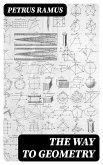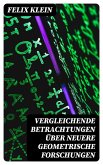In "Flatland: A Romance of Many Dimensions," Edwin A. Abbott employs a unique blend of satire, mathematics, and social critique to explore the limitations of perception and the nature of reality. Set in a two-dimensional world inhabited by geometric shapes, the narrative leads readers through a vivid exploration of social hierarchy, gender, and dimensionality. Abbott's incisive commentary, rendered in a whimsical yet thoughtful literary style, draws parallels between the rigid societal norms of Victorian England and the constraints faced by the inhabitants of Flatland. The novella serves not only as a mathematical thought experiment but also as a bold critique of contemporary societal issues, engaging readers in a dialogue on dimensionality and perspective that resonates across disciplines. Edwin A. Abbott, a clergyman and educator in 19th-century Britain, was deeply interested in the intersection of literature and mathematics. His background in theology and philosophy, coupled with his experiences within a rigidly stratified society, undoubtedly influenced his portrayal of Flatland's geometric characters. Abbott's intellectual environment encouraged a questioning attitude towards conventional norms, thus motivating him to depict a world where enlightenment comes through the acceptance of multi-dimensionality, both literally and metaphorically. "Flatland" is a must-read for those intrigued by the interplay of geometry and philosophy, as well as for lovers of satirical literature. Through its imaginative premise and profound insights, Abbott's work challenges readers to expand their thinking beyond perceived limitations, urging them to see the world through a more multi-faceted lens.
Dieser Download kann aus rechtlichen Gründen nur mit Rechnungsadresse in A, B, BG, CY, CZ, D, DK, EW, E, FIN, F, GR, H, IRL, I, LT, L, LR, M, NL, PL, P, R, S, SLO, SK ausgeliefert werden.









